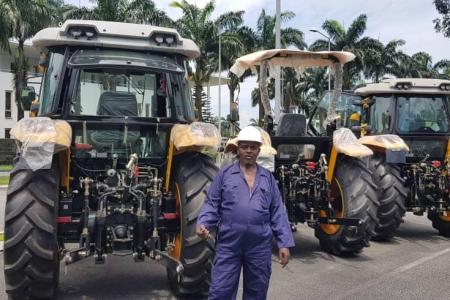There are no products in your shopping cart.
| 0 Items | £0.00 |


NIGERIA'S federal government has signed an agreement with several Brazilian firms to come and establish tractors’ assembly plants in the country as part of a major agricultural expansion programme.
Heavily dependent on crude oil for its survival, petroleum product exports account for over 90% of federal government revenue. With the fall in crude oil revenue as a result of the coronavirus pandemic and the incessant volatility in the sector, the government has been forced to look at means of diversifying the economy and agriculture tops the list of sectors being targeted.
Senator Abdullahi Adamu, the chairman of the Senate Committee on Agriculture and Rural Development, said the Federal Ministry of Agriculture has already secured funding from the Islamic Bank to accelerate the process. According to Senator Adamu, the plan was aimed at allocating at least 10 tractors to each of the 774 local government areas of the country.
He also said that a service centre would be established in all the local government areas where young people would be trained on how to handle the tractors and how to carry out some basic maintenance on the equipment. In addition, Senator Adamu also stressed the need for farmers to add value to their crops by investing in techniques that would enable them to preserve their produce.
Senator Adamu said: “Because of the commitment of the President Muhammadu Buhari’s administration to boost food production through agriculture, the Federal Ministry of Agriculture has come up with a programme to make tractors available to all farmers in Nigeria. Under this programme, some Brazilian firms are being contacted to come to Nigeria with support from Islamic Bank so that the companies would bring completely knocked down parts of tractors which would be assembled in Nigeria.
“Assembly plants for the tractors would be sited in Nigeria and there will be service centres in each of the 774 local government areas in the country. Each centre will oversee the number of tractors that are allocated to each local government and there would be at least 10 in each local government area.
“There will also be training of the youths on how to handle the tractors and the basic maintenance of the equipment. It is hoped that once we are done with the installation in the 774 local government areas, it will give a new lease of life to agriculture and young men and women will be the major beneficiaries because it would provide job opportunities.”